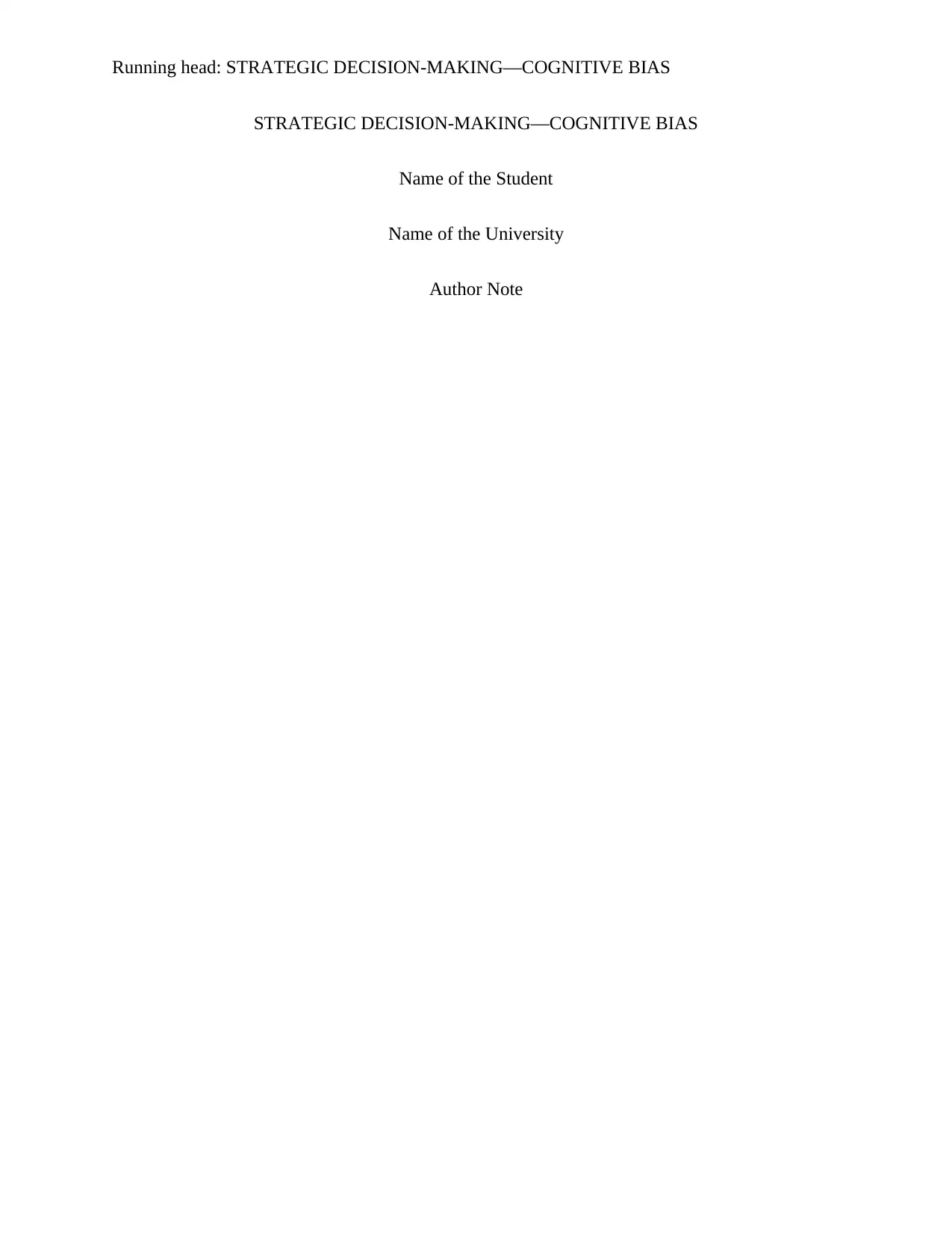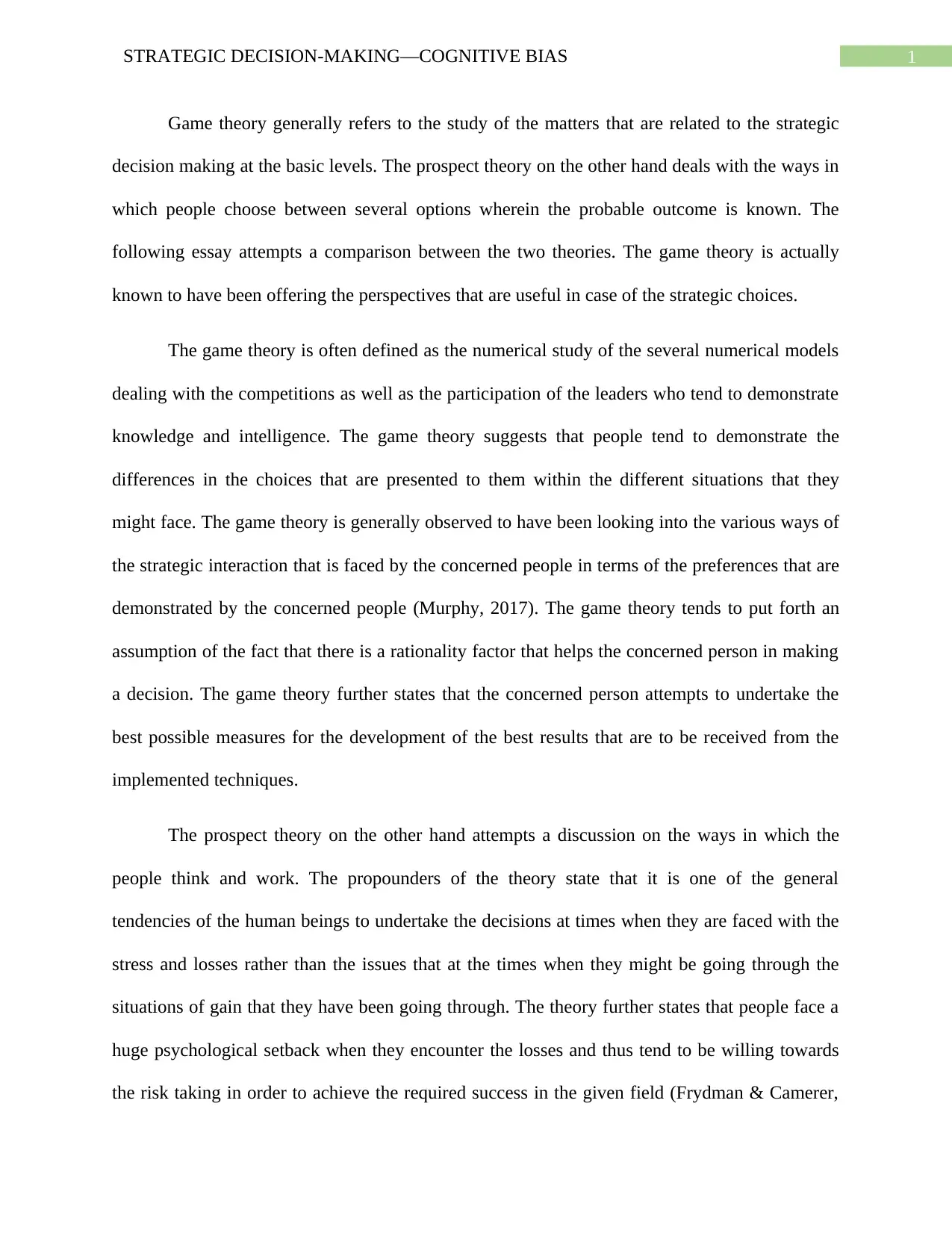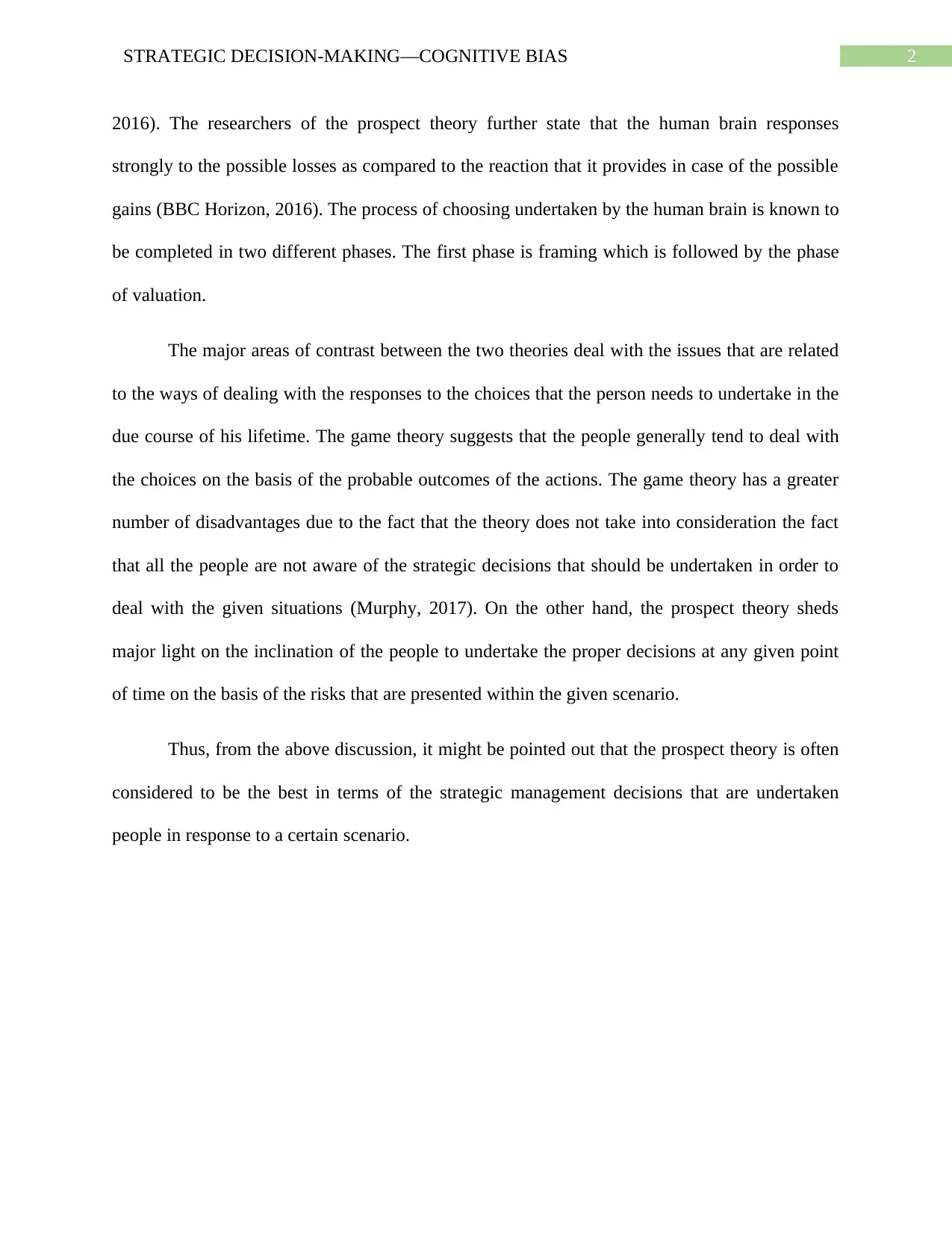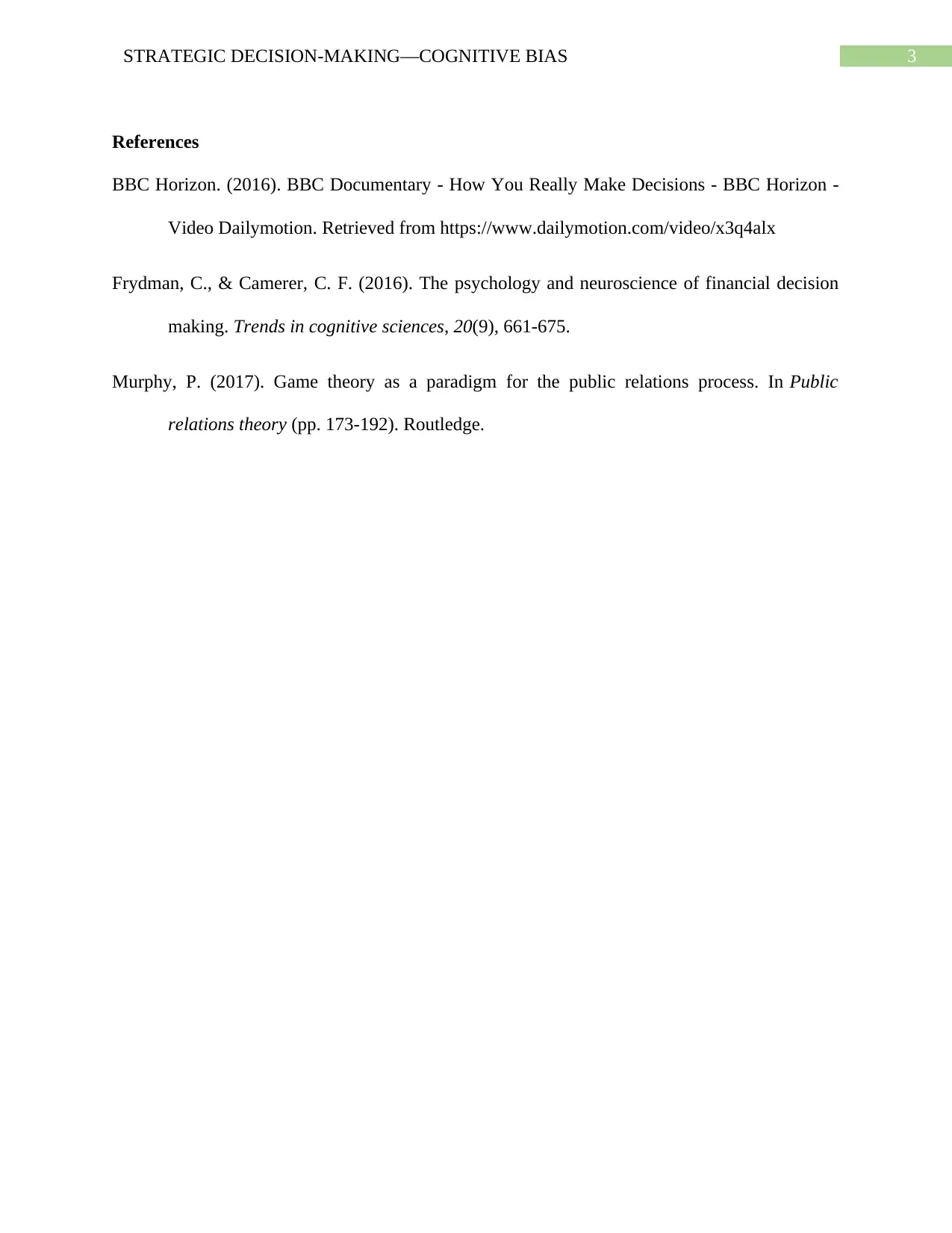Strategic Decision-Making: Game Theory and Prospect Theory Analysis
VerifiedAdded on 2023/04/05
|4
|701
|433
Essay
AI Summary
This essay provides a comparative analysis of game theory and prospect theory, two prominent frameworks used in strategic decision-making. Game theory, focusing on rational actors and strategic interactions, is contrasted with prospect theory, which emphasizes how individuals make decisions under risk and uncertainty, often influenced by cognitive biases. The essay highlights the core differences in how each theory approaches decision-making, considering factors such as risk aversion, loss aversion, and framing effects. While game theory assumes rationality, prospect theory acknowledges the psychological aspects of decision-making, particularly in situations involving potential gains and losses. The essay also discusses the limitations of each theory, concluding that prospect theory offers a more nuanced understanding of real-world decision-making processes, especially in the context of strategic management. The essay uses references to support its arguments and provides a comprehensive overview of the two theories' strengths and weaknesses.
1 out of 4











![[object Object]](/_next/static/media/star-bottom.7253800d.svg)